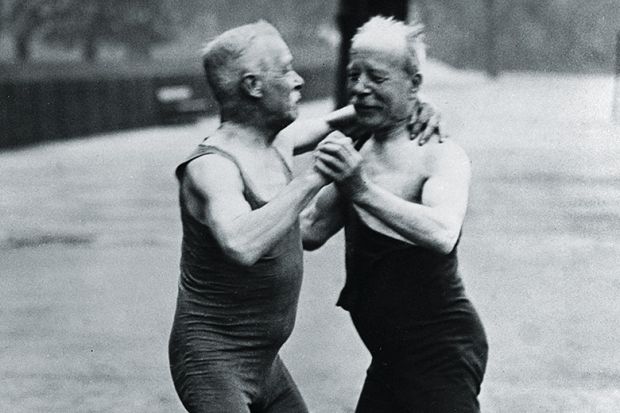Male scientists are more likely to share papers or information about their research among themselves than they are with their female peers, a report suggests.
Fascinated by the much greater natural willingness of humans to share compared with other species, researchers from the University of Vienna conducted a study to gauge the level of cooperation in one of the most competitive fields in society: academia.
The results showed overwhelmingly that academics as a group were generally “prosocial”, with 80 per cent of participants willing to share a PDF of one of their latest papers, and almost 60 per cent agreeing to pass along their data when asked.
What was clear, however, was that cooperation was most pronounced from male to male, and was less likely among all other gender combinations, with the difference standing at about 15 per cent.
“In comparative psychology, it’s always assumed that humans are very prosocial,” said the report’s main author, Jorg Massen, a cognitive biologist at Vienna. “However I did once question this assumption because most studies on humans are done in artificial lab situations.”
By sending emails to fellow researchers who had recently published in the fields of comparative psychology and social cognition, Dr Massen and his team were able to achieve more realistic conditions for the experiment.
However, the report concedes, the high response rate from man to man is further evidence to suggest that women are hampered by “male-exclusive networks in science”.
Such male-male alliances may have a cultural background in “old boy” networks, but they could also have roots in an evolutionary history that leaves men predisposed to sharing with each other to help alleviate inter-group conflicts.
“I think these two things can go alongside each other easily,” Dr Massen argued. “Of course there are causes at play in the modern world, but we should not underplay our genetic heritage. At the current state, it’s difficult, if not impossible, to disentangle these two things.”
The lower response rate of women could be a consequence of the increased competition that they experience in academia compared with their male peers, the study suggests, and could also reflect the fear of being “scooped”.
Commenting on the findings, which are published in Science Reports, Uta Frith, emeritus professor of cognitive development at University College London and chair of the Royal Society’s diversity committee, said that she was “very sceptical about evolutionary accounts”.
“As a psychologist myself, I am surprised that women psychologists are less inclined than men to share reprints and data when asked,” she told Times Higher Education. “One possibility, dismissed by the authors, is that the women had less time to answer requests. Most people agree that women academics carry a heavier work burden.”
Dame Athene Donald, master of Churchill College, Cambridge and the university’s former gender equality champion, said: “It is depressing to see how gender plays its part in yet another part of the academic life cycle.
“Whether women fear ‘being scooped’ – let’s face it, it happens and they may personally have seen it happen – or men just feel more comfortable sharing with people like them, ie, men, it is hard not to feel that our professional culture still has a very long way to go before it’s truly gender blind.”
Register to continue
Why register?
- Registration is free and only takes a moment
- Once registered, you can read 3 articles a month
- Sign up for our newsletter
Subscribe
Or subscribe for unlimited access to:
- Unlimited access to news, views, insights & reviews
- Digital editions
- Digital access to THE’s university and college rankings analysis
Already registered or a current subscriber?








